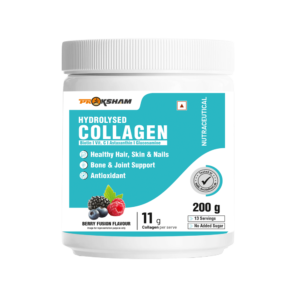PRODUCT OVERVIEW
Benefits
Heart Health
DHA and EPA, integral components of omega-3s, contribute significantly to reducing the risk of heart disease by not only lowering blood pressure and triglyceride levels but also by promoting overall cardiovascular health.
The anti-inflammatory properties of omega-3s aid in reducing inflammation in blood vessels and improving blood flow.
Brain Function
DHA, a prominent omega-3 fatty acid, plays a crucial role in supporting cognitive functions beyond aiding memory and concentration.
It is a key structural component of the brain and supports neural development, synaptic plasticity, and overall brain health.
Joint & Bone Health
Omega-3s, renowned for their anti-inflammatory properties, play a crucial role in supporting joint and bone health. These fatty acids contribute to reducing inflammation in the joints, providing relief from conditions like arthritis, and simultaneously promoting overall joint flexibility and mobility.
Additionally, omega-3s support bone density and strength, contributing to better overall skeletal health. This dual action on joints and bones makes omega-3 supplementation beneficial for maintaining a healthy musculoskeletal system.
Eye Health
DHA, a major component of omega-3s, particularly in the form of fish oil, is essential for promoting optimal vision.
It is a key structural component of the retina, supporting visual acuity and reducing the risk of age-related macular degeneration, a common eye condition affecting older adults.
Mood Regulation
Omega-3s influence mood by modulating neurotransmitter function in the brain. These fatty acids, particularly EPA, are involved in the synthesis of neurotransmitters like serotonin and dopamine, which play a crucial role in regulating mood.
Omega-3 supplementation may potentially alleviate symptoms of depression and anxiety, contributing to improved mental well-being.
Ingredients
Fish Oil (1000 mg), Vit. E (D-Alpha-Tocopheryl Acetate), Vit. A (Retinyl Palmitate), Vit. K (MK-7) 2
(Menaquinone), Vit. D3 (Cholecalciferol).
Excipients: Food Grade Gelatin (INS 428), Sorbitol (INS 420 (ii)), Glycerin (INS 422), Preservatives (INS 216 & 218), Ethyl vanillin (Nature and nature identical flavour).
Suggested Use
Take 1 softgel daily or as directed by a physician or healthcare consultant. Do not exceed the recommended daily usage.
Note: NOT FOR MEDICINAL USE
Why Choose Proksham
Proksham’s Omega-3 Softgel Capsules are meticulously crafted with a blend of premium ingredients to enhance overall well-being. Each capsule contains Fish Oil (1000 mg), a rich source of omega-3 fatty acids, specifically DHA and EPA.
Additionally, the capsules are fortified with essential vitamins to provide comprehensive nutritional support. The inclusion of Vitamin E (D-Alpha-Tocopherol Acetate), Vitamin A (Retinyl Palmitate), Vitamin K (MK-7), and Vitamin D3 (Cholecalciferol) further contributes to the holistic benefits of Proksham’s Omega-3 Softgel Capsules. This thoughtful combination of ingredients aims to deliver a potent supplement that promotes overall health and vitality.
FREQUENTLY ASKED QUESTIONS
What are Omega 3 Fatty Acids
Omega-3 fatty acids are essential for overall health, playing a vital role in supporting various bodily functions. Unlike other macronutrients, these polyunsaturated fats, particularly DHA and EPA, are crucial for our well-being but cannot be naturally produced by the body, necessitating their inclusion in our diet or through supplementation.
Why Take an Omega-3 Softgel Supplement
While fatty fish like salmon offer rich omega-3 sources, obtaining sufficient levels solely through diet can be challenging. Omega-3 softgel supplements provide a convenient and reliable way to ensure optimal fatty acid intake.
How Can Omega-3s Help Athletes?
Athletes put a strain on their hearts and bodies. Omega-3s in Proksham’s capsules can:
- Support Heart Health:Omega-3s may help reduce blood pressure and triglycerides, promoting overall cardiovascular health crucial for athletic performance.
- Reduce Inflammation: The anti-inflammatory properties of omega-3s can help with muscle recovery after exercise and reduce joint pain.
Why Should Bodybuilders Take Omega-3s?
Building muscle requires a healthy body. Omega-3s in Proksham’s capsules can:
- Support Joint Health:Omega-3s’ anti-inflammatory properties may help reduce joint pain and stiffness, allowing for better mobility and training.
- Promote Overall Health:Omega-3s contribute to overall well-being, which is essential for optimal training and recovery for bodybuilders.
Can Omega-3s Benefit Senior Citizens?
As we age, our bodies change. Omega-3s in Proksham’s capsules might:
- Support Brain Function:DHA in omega-3s is essential for cognitive function and may help maintain memory and focus.
- Promote Heart Health: Omega-3s can contribute to a healthy heart by potentially lowering blood pressure and improving blood flow.
- Support Joint Health:Omega-3s’ anti-inflammatory properties may help manage joint pain and stiffness often experienced by seniors.
How Can Omega-3s Help with Children's Brain Development?
DHA in Omega-3s is a building block for the brain. Proksham’s capsules may:
- Support Brain Development: DHA plays a vital role in children’s brain development, potentially impacting learning and memory.
- Promote Cognitive Function: Omega-3s may contribute to overall cognitive function in children.
Are Omega-3s Beneficial for People with Heart Issues?
Yes, Omega-3s in Proksham’s capsules may be helpful for those with heart concerns:
- Reduce Heart Disease Risk:Omega-3s may lower blood pressure and triglycerides, potentially reducing the risk of heart disease.
- Improve Blood Flow:The anti-inflammatory properties of omega-3s can help improve blood flow and overall cardiovascular health.
Consult a doctor before taking Omega-3s if you have any pre-existing heart conditions.
Can Omega-3s Improve Eye Health?
DHA in Omega-3s is crucial for healthy vision. It helps maintain visual acuity and may reduce the risk of age-related macular degeneration.
Can Omega-3s Help with Menopause Symptoms?
Omega-3s may offer benefits when it comes to mood regulation as they influence mood by regulating neurotransmitters, potentially reducing symptoms of anxiety and depression sometimes experienced during menopause.
Consult a doctor to discuss a personalized approach to managing menopause.
Why Should Everyone Take Omega-3s?
Omega-3s offer a variety of potential health benefits. Proksham’s capsules can contribute to:
- Overall Well-being:Omega-3s support heart, brain, eye, and joint health, promoting overall well-being.
- Essential Nutrient Intake:The added vitamins in the capsules provide additional nutritional support.
Can Omega-3s Help Cancer Patients?
While research is ongoing, some studies suggest that Omega-3’s’ anti-inflammatory properties might be beneficial for cancer patients.
Omega-3s should not be used as a sole treatment for cancer. Consult a doctor to discuss a comprehensive treatment plan.
Customer Reviews
Sorry, no reviews match your current selections5 star 0% 4 star 0% 3 star 0% 2 star 0% 1 star 0%
















